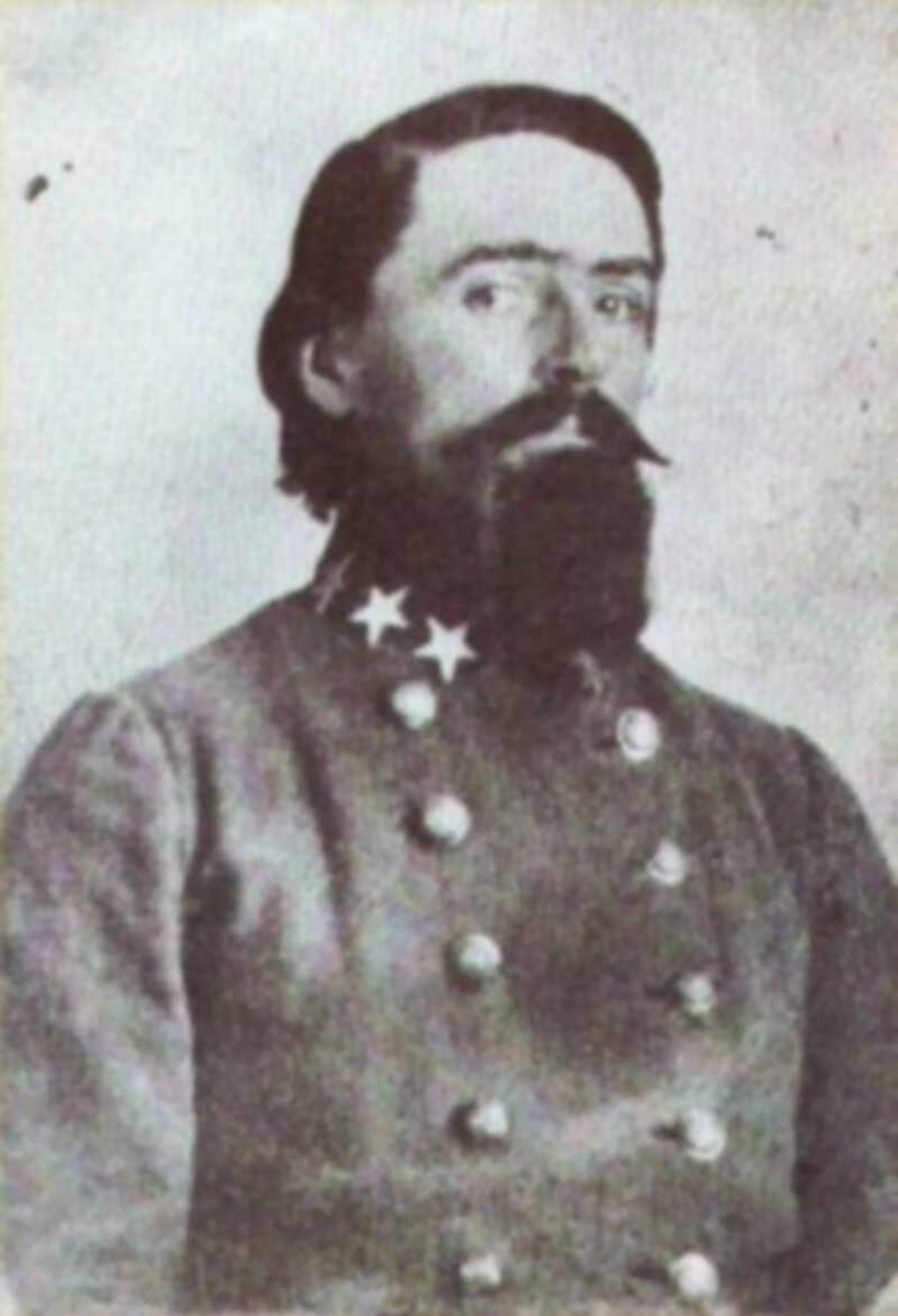Col. W.L. Jeffers and the 1871 night rider crisis
Most who know of Col. William L. Jeffers remember him as the commanding officer of the Confederate 8th Missouri Calvary Regiment and its predecessors, which recruited many Southeast Missouri men during the Civil War. This regiment fought numerous battles in Arkansas and Missouri and participated in Price's 1864 raid into Missouri. Union forces captured Jeffers at the Battle of Mine Creek, and he spent time at the Johnson's Island, Ohio, prison until the war's end...
Most who know of Col. William L. Jeffers remember him as the commanding officer of the Confederate 8th Missouri Calvary Regiment and its predecessors, which recruited many Southeast Missouri men during the Civil War. This regiment fought numerous battles in Arkansas and Missouri and participated in Price's 1864 raid into Missouri. Union forces captured Jeffers at the Battle of Mine Creek, and he spent time at the Johnson's Island, Ohio, prison until the war's end.
Jeffers returned to Missouri after parole, eventually settling in Clarkton in Dunklin County. There he opened a hotel and became town marshal. As the marshal, Jeffers faced a situation in 1871 that was to challenge his leadership abilities.
During 1871, bands of lawless Ku Klux Klan members, or "Dead Men," wearing long black gowns with white stripes and skull caps, terrorized many residents. Earlier, many local men had joined the Klan thinking it was a political movement, but by 1871 it had become a "... band of horse thieves, robbers, and murderers," many of whom were fugitives from justice in other states.
The outlaws directed acts of violence against African-American residents, ex-Federal soldiers, those who assisted victims and those who denounced the violence. Among those killed were Capt. Jenkins and Dan Scarlett of New Madrid County. Night riders also broke windows and burned the barn of Postmaster Peter Hoehn of New Madrid, whose transgression was writing to the governor about the situation. In Stoddard County, friends brought a man wounded in one incident to a Dr. Schneider for treatment. The outlaws arrived later, but shotgun fire from fed-up local people greeted them, killing three. The group threatened a Black man in Allenville in Cape Girardeau County for attempting to build schools and churches for African-Americans of the neighborhood.
These and other events resulted in an investigation by Capt. Edmund S. Woog, chief clerk in the Missouri Adjutant General's office. Woog recommended local militia could best deal with the problem. Thus, Gov. B. Gratz Brown ordered the enrollment, arming and equipping of militia in Dunklin and Stoddard counties Oct, 10. Adjutant General Albert Sigel appointed Col. Jeffers in Dunklin and Capt. William Ringer in Stoddard to enroll militias of up to 100 men each.
Jeffers took the duty seriously and recruited the militia as ordered. At one point, Klansmen entered Clarkton, and Jeffers ordered the party to make peace while they were in town. Subsequent threats from the Klan became so severe that Jeffers left town and went to Cape Girardeau. Woog later spent three days in the area after the militia began operations and observed lessening of the outlaw activities. The emergency abated.
Jeffers relocated to the newly-platted Dexter in 1873 and opened another hotel, the Jeffers House. His health declined by late 1902, when he sold the hotel. He traveled to Hot Springs, Arkansas, to attempt to regain his health, then to Corpus Christi, Texas, where he died of kidney failure on Feb. 15, 1903.
Connect with the Southeast Missourian Newsroom:
For corrections to this story or other insights for the editor, click here. To submit a letter to the editor, click here. To learn about the Southeast Missourian’s AI Policy, click here.











